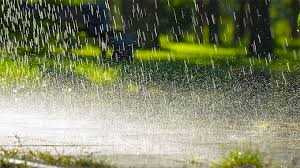
THE onset of the current rainy season has increased the risk of outbreaks of tick-borne diseases among livestock, a senior government official has said.
In a statement on Tuesday this week, Lands, Agriculture, Fisheries, Water and Rural Development deputy minister Davis Marapira said while the government was happy with the rains, it could spur grass growth and increase tick population.
The development, Marapira said, posed additional threats through tick-borne diseases such as January disease, red water and hot water.
He called on farmers to dip their cattle regularly, advising those in high risk regions to dip them every four days, with those in less infested areas doing so weekly.
“We have diseases like January disease, red water and hot water, mainly caused by ticks, black quarter and anthrax (which) are also prevalent during this time. So, I would encourage our farmers to focus on dipping cattle every four days in high-risk areas and weekly in less affected regions,” Marapira said.
He, however, urged the farmers to postpone deworming their animals until late December to avoid overwhelming their weak livestock that is still recovering from the effects of the recent El Niño-induced drought.
“Our cattle are bad in terms of conditions so if we introduce the deworming chemicals, they [chemicals] are too strong that they may affect our cattle,” Marapira said, adding that farmers should continue supplementary feeding until the end of December.
He also highlighted the importance of using harvested wheat as a viable feed source, as well as silage for those who have.
- Rabbit farming a promising sector: Govt
- Agroecology takes centre stage at seed festival
- ‘Rainfall season increases risk of tick-borne disease outbreak’
- Punish reckless farmers who let livestock stray
Keep Reading
“Supplementary feeding with wheat and silage is encouraged to boost animal health, alongside phosphorus blocks to provide essential minerals,” he said.
Meanwhile, Agricultural Advisory Rural Development Services chief director Leornard Munamati has encouraged farmers to start planting crops.
“Farmers are encouraged to make sure they start planting as soon as they start receiving rainfall. What is quite exciting is that farmers have been preparing their Pfumvudza plots and to date, we have recorded 9,6 million plots prepared by farmers in provinces,” he said.
Munamati advised farmers to utilise pre-emergence herbicides to manage weed growth effectively, especially with forecasts predicting excess rainfall.
“Once we use pre-emergence herbicides that will allow us to control the weeds as soon as we finish planting,” he said.










